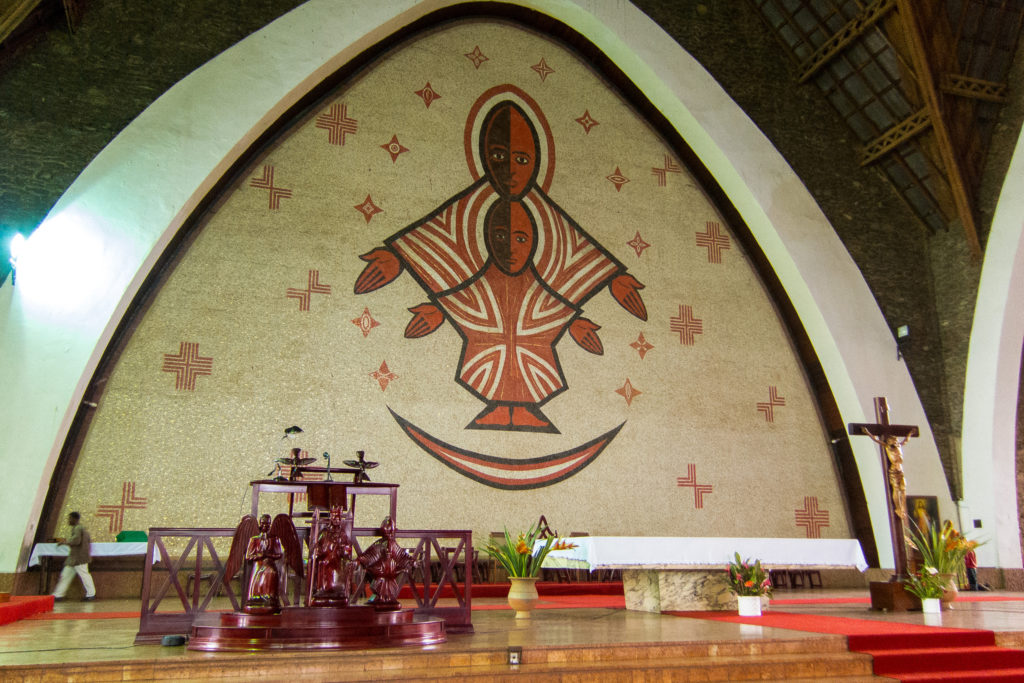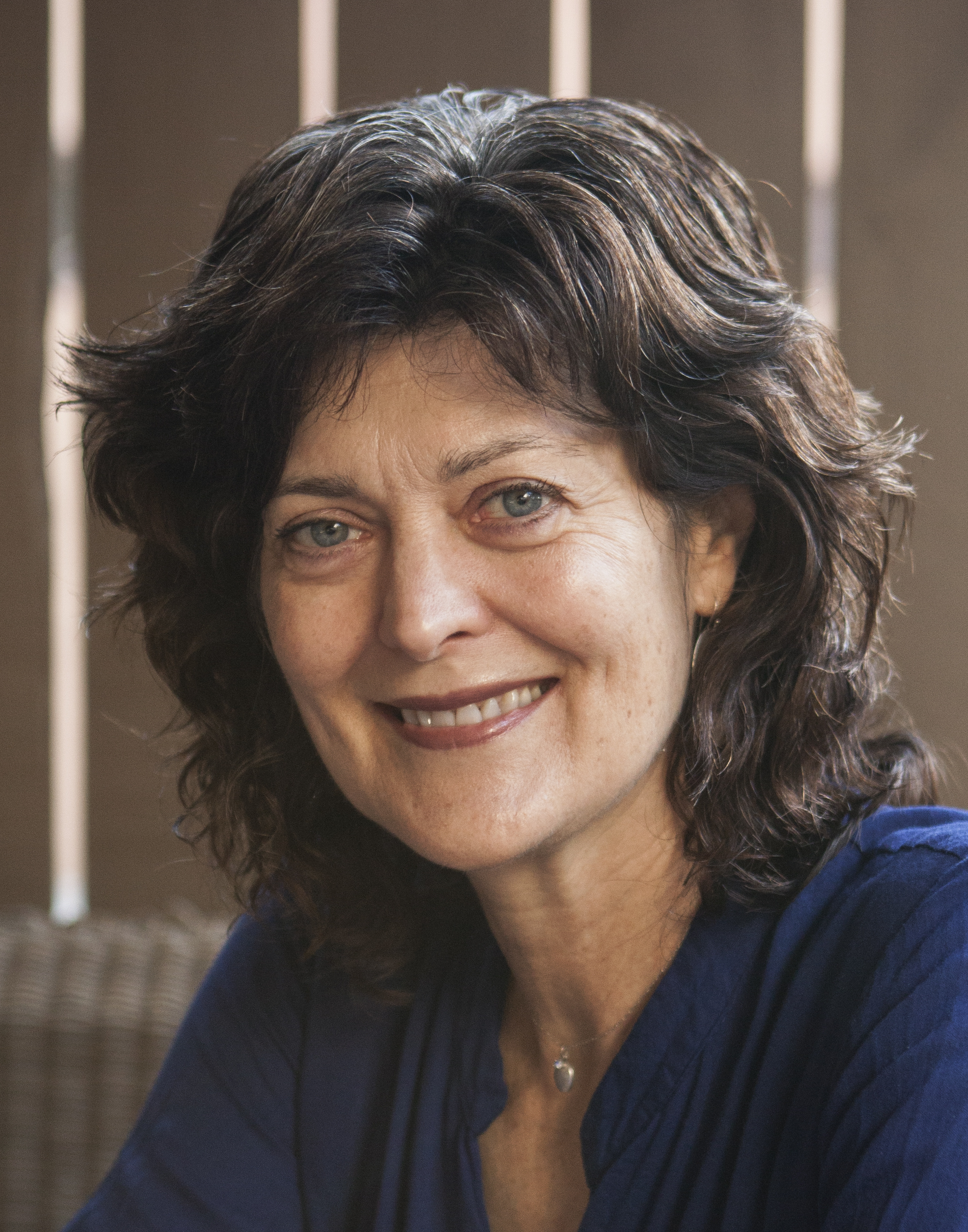
How do religious women in Cameroon navigate their faith vis-à-vis their communities and religious hierarchies? Our Contending Modernities project is in its initial phase, so in this blog post we detail our framework and initial thoughts, focusing on the structure of Catholic women’s engagement in Cameroon. (Our larger project examines three different constellations of women’s groups—Muslim, Catholic and African “traditional”—in Yaoundé, Bamenda and near Ngaoundéré, three distinct parts of the country.)[1] We want to know whether and how these women of faith consolidate community and reinforce and/or challenge authority. We are particularly interested in settings in which Cameroonian women employ tools of their faith to assert rights, grow spiritually, and address economic and political issues they face, vis-à-vis religious and governmental structures of authority. We conceptualize authority as encompassing religious as well as political and economic forms of legitimacy and decision-making. We think of community as consisting of intersecting gender, faith, geographic and ethnic boundaries and identities. The women’s groups in each site are also connected to different degrees to broader faith-based and NGO networks and transnational advocacy and humanitarian groups. They thus provide important sites for investigating the multiple forms of authority and community in Cameroon, a country often described as a microcosm of the continent, bringing women’s agency to the fore in ways that are shaped by but not pre-determined by transnational pressures and trends.
Background: Catholic Socio-Religious Organizations
As background, we detail initial observations regarding the dynamics at the heart of Catholic religious communities in many parts of Cameroon. The collaboration between engaged laypersons and religious authorities has many implications for the social and professional lives of the faithful. It is important to recognize that many active Cameroonian Catholics, including women, are motivated by the desire to live their spirituality and offer their services to Church institutions. Such engagement, however, can, at the same time, produce competition as well as self-promotion in order to obtain a potentially privileged position vis-à-vis the clergy.
Catholic women (and men) may belong to religious institutions that are also social and many times remunerative. These organizations parallel public institutions as well as secular (non-religious) private ones. Members of the clergy may also use their influence to promote particular lay women and men in positions within these organizations, including within public and private non-religious institutions. While Cameroon does not have an official religion, Catholics do make up almost 40% of the population, while Christians overall make up 65%.
Socio-professional promotion, then, becomes in part institutionalized through religious engagement. Such processes occur particularly in charismatic groups, and represent, in effect, an important way in which modernity is created for Catholic women. Many factors contribute to the fact that these religious associations become the promoters of personal and socio-professional development. Women, for example, learn the games of competition, the modes of efficient management, and the methods of diverse organizational performances; these organizations also encourage aspirations to better living conditions. At the same time, they provide psychosocial and frequently economic solidarity as well. Finally, acquiring these leadership and organizational skills provides a space for the ongoing construction of women’s identity, both religious and socio-professional.
The Catholic Women’s Association
The Catholic Women’s Association (CWA) of Cameroon, based in Bamenda, links and organizes Catholic women in cities across the country. Our initial contacts have been with the organization in the capital, Yaoundé, where we met with a number of the women leaders in the capital city, and attended a benefit event for a local hospital with them. This event was organized by a coalition of many groups, including the Belgian Embassy, and took place at the Hilton hotel, the premier hotel in the city. Prior to this event, the primary investigator (PI) met with one of the leaders of the CWA in Bamenda, who immediately took her to the archdiocesan priest who acts as the spiritual advisor for the group. This was done to ensure that the priest was informed of and approved of the research project; the CWA leader also wanted the PI to understand how important the priest was to the women’s spiritual formation. At our meeting, the priest was not only supportive, but also very helpful in making additional contacts, in particular with the national CWA President in Bamenda. These events confirm that the CWA is an important means of spiritual as well as social identity formation, and also indicate that the CWA tends to work closely with religious authority, but also that its members tend to be connected with centers of influence that are not explicitly religious. Subsequent visits can help us address the degree of professional (and also economic and political) identity formation, as well as any independent channels of religious formation among the women.
One of the features of Cameroonian politics is the potent division between the anglophone and francophone sections of the country, which stems from the post-World War I era when Cameroon, which had been colonized by Germany in the 1880s, was divided between the British and the French. The francophone political class has been dominant in the country since independence, and Anglophone grievances built up and in 2016 erupted in strikes largely led by professionals (particularly lawyers and academics). The government responded by cutting off internet access to the Anglophone part of the country. Bamenda, the headquarters of the CWA, is in the anglophone part of the country, while Yaoundé, the capital, is largely francophone, although the majority of people in the capital have a knowledge of both languages (as well as one or more Cameroonian languages). As a result of the internet cutoff, the PI’s email requests to CWA headquarters have not been answered, and communication other than by telephone is difficult.
This situation means that subsequent research will also be critical in assessing whether the CWA attempts to transcend linguistic as well as other identity boundaries. We intend to develop further our understanding of what constitutes the channels of authority and influence for women in the CWA, vis-à-vis both the Catholic clergy and institutions outside the official purview of the Church (examples could include other professional associations, universities, embassies, government ministries, transnational NGOs). Finally, subsequent research can aid in identifying the importance of diasporic connections for the CWA. The CWA’s website discusses its diasporic links and activities, providing yet another way in which CWA members negotiate “modern” identity, socio-economic factors, and relationships of authority with other women as well as with clergy.
[1] “Traditional” African religions are significant in all three areas of the country, either separate from or in combination with adherence to Christianity and Islam, although they are more evident in some places than others.


